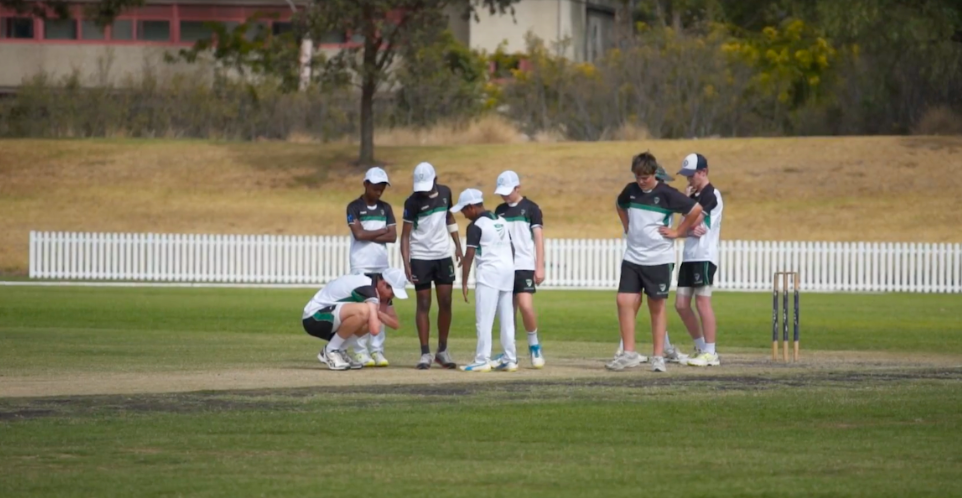
I’ve been very lucky.
My parents chose to put me into structured sports and as a result I think I’ve learnt a lot of key skill sets that help me not only with social life, but work and business life as well.
I’m not saying that this is just in cricket, however that is my medium of communication today.
Cricket is a different game, a silly game to many.
Spending a lot of your time preparing and practicing only to get a small go at it each weekend.
There are many important skills that I feel you find and develop from the uniqueness of cricket (and other sports) that really set people up for success.
You hear it quite often that many CEOs or high performing people have either come from an elite sport or military background.
This doesn’t surprise me one bit.
I’ve compiled the 5 key skills that your child will learn playing the game we love, which will ultimately help them for the rest of their life.
1. Deal With Failure
It may sound weird but I think one of the best parts of playing cricket is how well you get used to dealing with failure.
I mean, how often to most players go out and score 50 plus runs? Or take 5 wickets in a game.
There are very few sports that give you one go at something and if you don’t do it right, you sit out for most of the day!
I think understanding the relationship that players have with failure, and overcoming that fear ultimately contributes to more consistent performances.
Transfer that into real life, or work and school and this gives people greater confidence and an understanding that failure is okay, it’s just doing the same thing badly all the time isn’t going to get you anywhere.
2. Ability to Handle Feedback
Being involved with coaches, playing in a team sport and learning constantly, you will encounter many of these people giving you feedback.
Some good, some bad.
The one thing in cricket that I think really helps with players outside of their game is how they can handle it.
Of course, many players don’t deal with it well, but the majority have at least been playing the game have had to dissect and receive negative feedback before.
This can be a tough pill for a lot of people to swallow, but I find being involved in teams and constantly reviewing their games, techniques and performances, you find that players seem to be a little bit better at taking it and trying to find ways to make them better.
3. Setting & Achieving Goals
Another crucial aspect that we rely heavily on in our academy programs is having players set, reflect and more often than not achieve goals.
Engraining these thoughts and habits into younger players at an earlier age only bodes well for their schooling and other interests.
It’s teaching this skill effectively and just having them being aware that small improvements over time result in greater outcomes in the end. It’s called the compound effect.
I’ve been amazed at how such a simple skill isn’t necessarily common practice to many people who haven’t been exposed to it and I think it’s just a natural thing that players do in our game.
Even subconsciously.
4. Working in a Team With Different Personalities
Not everyone you play cricket with are going to be your best mates…
Actually you’ll find over time that you will encounter quite an eclectic bunch of people.
Our great sport draws many types to the game we all love!
But somehow when you have to all come together with a common goal or purpose stuff like that doesn’t matter.
I think this is a very key ingredient to team sports.
Having the ability to work in with such different types of people, but coming together and trying to achieve the same task or result.
This skill in itself is invaluable. Be it in the work place, in the school yard or just socially in general.
Being introduced to this through the medium of sport makes their life a whole lot easier on the outside.
5. Accountability For Actions
Being accountable for your actions is sometimes a throw away phrase.
But for people who have been in team environments, especially one like cricket you see there is merit in it.
Having that awareness to stick to your role within that team and not steer away from that.
Choosing to work within the team structure and knowing that if you make a mistake or do something away from your strengths and it doesn’t work, the group will pay the price, not just you.
A lot of these skills and traits develop subconsciously, and as I mentioned earlier, aren’t necessarily just native to playing cricket.
But what I have noticed over time is the bond and lessons that I have learnt on the fields, are very, very similar to life so far.
Sometimes not necessarily fair, or something that you want to do, but at the same time something that needs to be done in order to be effective and win.
So on that note, if you are a parent or coach I thank you.
The kids or your players may not think it yet, or may not even come to realise it at all over their time, but you have done them a massive service in life by having them involved in a team sport such as cricket.
Written by Joel Hamilton Co Founder ACI

